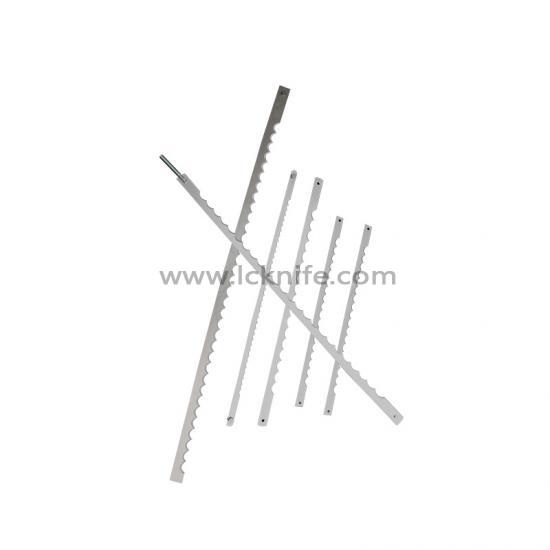
Selecting the right teeth knife is essential for achieving clean, efficient, and cost-effective cutting results in industrial applications. Whether you're working in the packaging, food processing, plastic, or rubber industry, using a knife tailored to your specific cutting task can significantly improve productivity and product quality.
The first factor to consider is material compatibility. Different materials require different types of teeth knives. For example, soft materials like plastic films or paper benefit from fine-toothed blades, while tougher materials like rubber or composite layers may need coarse, reinforced teeth for aggressive cutting action.
Another critical aspect is tooth design. The shape, size, and spacing of the teeth determine the cutting efficiency and edge finish. Straight teeth offer consistent slicing, whereas serrated or scalloped designs are better suited for gripping and tearing through fibrous or layered materials.
Blade material also plays a key role. High-speed steel (HSS), tungsten carbide, and stainless steel are popular choices, each offering different levels of hardness, wear resistance, and corrosion protection. Coatings such as TiN (Titanium Nitride) can further enhance blade longevity in high-friction environments.
Finally, consider whether the blade is re-sharpenable or disposable. Reusable knives offer long-term value and sustainability, while disposable types are suitable for environments requiring strict hygiene or fast blade changes.
Tags :
Scan to wechat:
